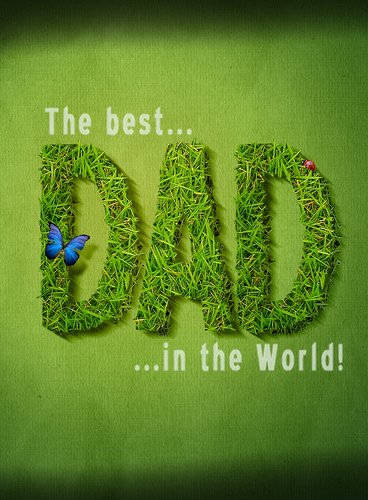I may not be a first-rate composer, but I am a first-class second-rate composer. – Richard Strauss

How true is this? Are you a first-rate dad, or a first-class second-rate dad? Are you truly world class, or just in the eyes of your kids?
What does that mean?
That’s just a little harsh, but he was judging himself against such greats as the other Strauss family and Wagner, whom were recognized as greats even in their day. For those not familiar with his work, Richard is most well known for the use of Also Sprach Zarathustra for the theme for the movie 2001.
In the quote, I believe him to be acknowledging his limits, and doing so with both dignity and humor. My guess is that this quote was in response to a boorish question asked by a reporter or detractor regarding his status as a first-rate composer.
We can’t all be first-rate everything, and most of us won’t be first-rate anything, at least not on a national or international scale. However, there is plenty of room in the second tier, as is alluded to by the quote. While some could never settle for being anything other than #1 in the world (Donald Trump comes to mind),
How do you handle things when you aren’t the best? That speaks a lot about who you are and what you are made of, about your character, doesn’t it? Some people who have the classic “Type-A” personalities might have a little difficulty with the concept.
Why is honest with yourself important?
If you aren’t honest with yourself, who will you be honest with? If you aren’t honest with yourself, the rest of what you do will be based on the lies you tell yourself. Your actions will also be predicated on lies. In my opinion, that’s not a great way to live a life.
Instead, I try to be as honest with myself as I possibly can. Am I the greatest (anything) around? Nope. Even if just by statistics, there are far too many other people on the planet for me to be in the top 1% at much of anything that I do.
However, I am, as most of us are, better than average in most of what I do. Did you see what I did there? How often do we inject little white lies into our lives? Honesty can be a tricky thing in a world built mostly on ad copy and attempts to influence with exaggerations and statistics.
Where can I apply this in my life?
Honesty, in my opinion, is the best policy. Given that as my baseline, I would recommend applying honesty with yourself as a first-rate priority. With any luck, even if you aren’t first-rate at honesty with yourself, you can prove yourself to be first-class within the second-rate group of honest people.
Most of us, when we lie to ourselves, only do small lies. The most famous are the “little white lies” and justifications. Little white lies are used to smooth things over, to avoid conflict or to otherwise keep the peace. They are considered “normal” in many Western societies, as well as others.
More dangerous, in my opinion, are the justifications or rationalizations we use when we know better. These are lies designed to allow us to do what we want when we know that we shouldn’t be doing it.
I just finished a snack, but managed to avoid the Oreos and the justification that it was just a few of them. It wouldn’t make that big a difference in my weight or in my health, the rationalization continued. Can you see how quickly such an approach can cause problems, both for my ethical standing and my waistline?
Once you start using these techniques, there is no end of third-rate (or even lower) behaviors one can excuse. However, with honesty, specifically honesty with yourself, so much of this can be avoided. For some of you, it’s easy. Congratulations, and good for you!
For the rest of us, it’s going to be a constant battle until we can establish proper habits to replace the sloppy and dishonest ones we have developed over the years. Now the question becomes “how to do we go about doing that?”
I wish I had a simple, sure fire way of doing it. However, I do have my standard method of conscious competence. Using this method, when I notice that I’m not doing something right, I stop and start to do it the right way. Not exactly a sure-fire way of doing things, but it’s the best option I have at the moment.
Another technique that can be of help is to find leverage to help you stop a specific behavior (lying to ourselves, in this case). Consider what the worst case scenario would be, if you kept up the lies and maintained the incorrect, but pleasurable, behavior.
In one case of mine, my continued reliance on sweets as a mood altering treat could easily lead to significant weight gain. With that comes additional problems with blood pressure and the chance of Type 2 Diabetes. If that’s not enough to keep you from unnecessary snacking, I don’t know what will.
Ultimately, you are the only person who can make the decision how honest you will be with yourself. From that decision, all other decisions regarding honesty flow, and it is very difficult to be more honest with others than you are with yourself.
From: Twitter, @JoyceDiDonato
confirmed at : http://www.brainyquote.com/quotes/quotes/r/richardstr392212.html
Photo by tomontoast
PS – My favorite quote from this great man is truly sage advice: “Never look at the trombones. You’ll only encourage them.” As a youth, I was an encourage-able (and incorrigible) trombonist. I can state without doubt that he spoke the truth! 8)
Happy Birthday to Richard Georg Strauss, born on 11 June, 1864.

Reblogged this on FILOSOFISK.